Old Time Radio Resources
I am working to add content to this page, I'm waiting for permission to use graphics from specific websites so this will take awhile I'm sure. If you don't have it already, download Media Player 10, the experience it provides with enabled content is unreal.
Old Time Radio Links
This page was last updated: July 2, 2008
I have created a sample of some of the programs you might hear on these sites, warning, it's 2.9 megs so not dial-up friendly! If you have Media Player 9 or 10 it can detect your connection speed and will adjust the buffering for that speed.
There was a time, not so long ago, when there was no internet, no CD players, and no television.
There were books, newspapers, movies; and there was Radio. Radio at that time was not radio as we know it today. Radio today is mostly in the background, playing music, announcing time and weather, and occasionally providing a newscast. Radio between 1925 and 1955 was completely different.
These thirty years are considered by many to be the “Golden Age of Radio”. Before 1925, radio was considered to be a one-way “wireless telephone”, providing current news, information, and live musical entertainment. After 1955 radio began to change into something else. By 1960 “Old Time Radio” had disappeared completely.
So what is “Old Time Radio”? Most people think of Old Time Radio as that type of radio programming that was on the air during the so-called “Golden Age”. Early radio stations were independent. They operated pretty much where and when they wanted. Eventually, in 1934, everything regarding station operation was standardized and regulated by the FCC. But even before the FCC was formed, some stations were broadcasting unique programs.
Certain stations had their own “stars” and broadcast dramatized versions of novels, or original stories written for the program. They broadcast comedy, variety, live music, news analysis, mystery, and so forth. Listeners in different parts of the country became aware of programs from stations in distant cities. These stations could not always be heard clearly, and some could not be heard at all past a certain distance. In order to satisfy these listeners, a number of stations formed a network, whereby the same program could be heard on a number of stations simultaneously.
It was due to these networks that certain programs became popular throughout the entire United States. Programs such as Jack Benny, Amos ‘n’ Andy, Fibber McGee & Molly, Major Bowes, Walter Winchell, and The Lone Ranger were known to just about everybody. Year after year programs such as these occupied the “same time same station” and became almost automatic listening for many listeners. The broadcast times for these programs was purchased from the networks by sponsors, such as Rinso, or Johnson’s Wax, or General Mills. The sponsor’s name would usually be announced first, such as, “The Lucky Strike Program, starring Jack Benny”. Unlike today’s television where there is usually no one sponsor for any specific program.
More and more programs filled the broadcast day. You could tune to one station and hear a large number of different types of programs. In the morning and early afternoon you could hear, for example, soap operas. These were fifteen-minute serials, such as “Young Widder Brown”, “Ma Perkins”, “Backstage Wife” – usually involving women in impossible situations. These were mostly sponsored by laundry products, hence they became known as “soap operas”. Then in the afternoon, when the kids came home from school, you would hear “The Adventures of Superman”, or “Jack Armstrong, The All-American Boy”, or “Captain Midnight”. These were usually also fifteen-minute serials.
In the early evening, the half-hour programs would begin. “The Green Hornet”, “The Shadow”, and the ever popular “Lone Ranger” would be broadcast at a time when the kids were still awake and the adults were ready to start listening, too. Later in the evening were mystery and dramas such as “Suspense” and “Inner Sanctum”, or detectives such as “Boston Blackie” or “Sam Spade”. There were also hour-long programs like “Lux Radio Theatre”. Of course, there were many Comedy and Variety programs.
Every network had a line-up of interesting and informative programs of every type and description. There were hundreds of programs to choose from every day. These programs comprise what is commonly known as Old Time Radio. There was strict censorship of all words spoken during these broadcasts. This censorship was also part of Old Time Radio. Anybody could listen without fear of being offended by the broadcast. This is part of the charm of Old Time Radio; Great entertainment, for the whole family.
--------------------------------------------------------------------------------
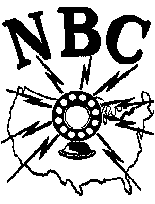
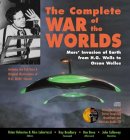
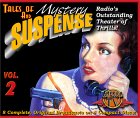
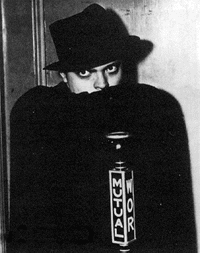
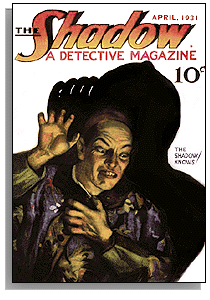
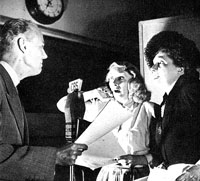
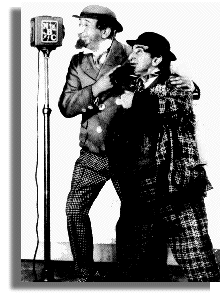
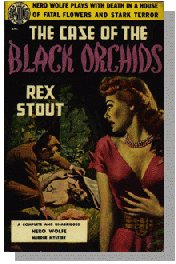
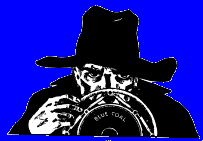
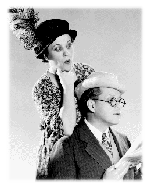
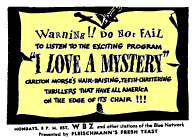
Copyright © 2004 - 2005. All rights reserved.Revised: December 29th, 2004
Images courtesy of other web sites are owned by those web sites, please contact them for permission to use them.